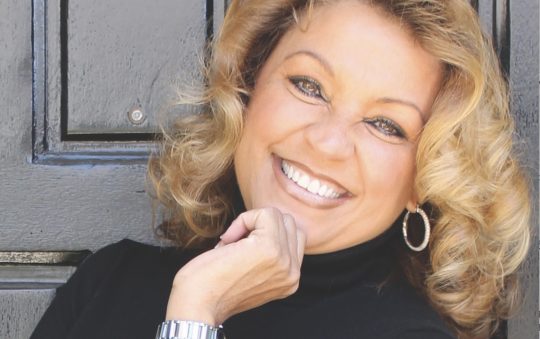
I want to start by saying I am grateful to be an American and more specifically an African American. I come from a multi-cultural background where my mother is of European descent (German) and my father is an African American born in Texas. I recently returned from Ghana with an organization called African Focus where we learned about “The Year of Return” celebrating 400 years of African Resilience. The celebration reminded us of the Atlantic Slave Trade that began in 1619 where captives were sold into slavery and sent to different parts of the world and how important it is for us to return. We also learned that we as a people should never refer to our ancestors as slaves, but rather as captives that became enslaved people.
Ghana is known as one of the main ports where many captives were transported across the Atlantic to various spots around the world. They were bought and sold and sent to Haiti, Europe, North and South America and beyond. The people of Ghana are encouraging Black people from across the diaspora to return to Africa and walk back through the door that was once referred to as “The Door of No Return;” to say we have survived, and we are still here. Only the strong survived this horrific situation and we are the descendants of those who survived. I am the fourth generation of free Black people in my family. History can’t be changed, but we can change how we view ourselves, our ancestors and our narrative.
As I reflect on what I experienced and learned while I was in Ghana, it made me also think about how celebrating the 4th of July can have a different meaning and conjure up different emotions depending on who you talk to. While some look at it as Independence Day commemorating the Declaration of Independence of the United States from the monarchy of Britain in 1776, others were being forced to come to this country as enslaved people to help create the world the “Founding Fathers” envisioned. Slavery in the United States was only abolished a little over 150 years ago and the healing from such atrocities is still a reality. Since emancipation, people of color still wrestle with being treated as equal citizens under the law. Black people were not even considered human by some and even today our lives are often not valued.
My heart aches with the pain that still exists in our world today. I don’t have all the answers as to how we get to a place of understanding and healing, but I do know that it has to start with forgiveness and conversations. Just as my Jewish friends make sure we never forget about the Holocaust, we too must make sure people don’t forget about the ugliness of slavery in America. We must understand the role it played on the lives of African Americans and the residual effect it has even to this day. While in Ghana we visited the Slave Castle in Cape Coast. The tour guide showed us a dungeon (cell) where captives that refused to be shackled and submit were thrown into to die. They were called troublemakers because they felt to their core that they would rather die than to be taken into slavery. What would you have done?
As we come together this holiday to celebrate independence, let’s not forget those that came before us that weren’t given the same opportunities and were forced to build a land and country that all of us benefit from today. Let’s be true Americans and come together and fight for peace, justice and liberty for all.
Healing Without Hate: It’s a choice. It’s a lifestyle. Pass it on!
Visit www.WendyEnterprises.com, www.SeasonofGreatness.com and www.forgivingforliving.org to learn more. Wendy is an international coach, consultant, author and speaker.






